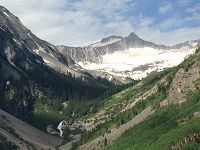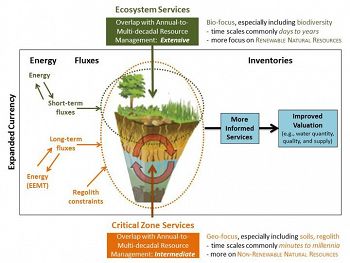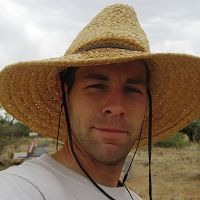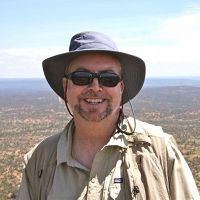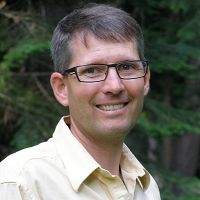EOS Opinion: Understanding Ecosystem Services from a Geosciences Perspective
22 Jan 2016
News Source: EOS.org
Assessment of ecosystem services can be improved by including broader spatial and temporal scales of geosciences perspectives.
Jason Field, David Breshears and several Catalina-Jemez CZO investigators published an opinion piece entitled “Understanding Ecosystem Services from a Geosciences Perspective” in EOS on January 19, 2016. Authors describe how a geosciences perspective in ecosystem services—the benefits society receives from ecosystems— would lead to a more robust understanding of relevant environmental processes and how to manage them for the benefit of society. As an example, expansion could include biological, physical, and chemical processes associated with Critical Zone evolution over time scales previously not considered in ecosystem services. Authors note “the long-term evolution of the CZ from its bedrock source is driven by climate-sensitive ecosystems [Rasmussen et al., 2011], and the evolved structure of porous soil and bedrock, in turn, affects how an ecosystem responds to perturbation [Lin, 2010].” They conclude with the need for geoscientists to partner with ecologists, economists, and social scientists to consider a broader range of temporal and spatial scales to incorporate ecological processes with the geophysical and biophysical mechanisms that support them.
Understanding Ecosystem Services from a Geosciences Perspective
Critical zone services provide context, constraints, and currency that enable more effective management and valuation of ecosystem services. From Field et al. [2015].
Human societies depend greatly on the natural environment in many ways: for food production, water supplies, erosion and flood control, and recreational opportunities, for example. However, the linkages between human societies and these benefits they derive from the environment have not always been considered explicitly when managing natural resources. To understand these linkages so that benefits from the environment can be more effectively managed, the framework of “ecosystem services” has emerged as a useful approach.
The benefits that society derives from the environment have been described in many ways, with ecosystem services initially classified into four distinct categories [Millennium Ecosystem Assessment, 2005]:
- Provisioning services are material benefits to humans, such as fiber, food, or timber.
- Regulating services are processes such as pollination, flood control, and disease control.
- Supporting services include nutrient cycling and soil formation.
- Cultural services are those aspects of species and ecosystems that provide humans with recreational, spiritual, or religious experiences.
An example of an ecosystem service critical to society is provision of water of sufficient quantity, timing, and quality for drinking and other human requirements. A traditional ecosystem services perspective focuses on relating active vegetation management (e.g., forest thinning) or vegetation change due to disturbance (e.g., fire, insect, or drought mortality) to water resources, often emphasizing precipitation, soil moisture, and surface water flows while not necessarily considering other influential processes [e.g., Alila et al., 2009].
Continue reading the full article on EOS.org, click here.
Critical zone services provide context, constraints, and currency that enable more effective management and valuation of ecosystem services. From Field et al. [2015].
News Source:
READ MORE from EOS.org >>
News Category:
RESEARCH
People Involved
CZO
-
Catalina-Jemez, INVESTIGATOR
-
Catalina-Jemez, INVESTIGATOR
-
Catalina-Jemez, INVESTIGATOR, COLLABORATOR
-
Catalina-Jemez, INVESTIGATOR
-
Catalina-Jemez, INVESTIGATOR
-
Catalina-Jemez, INVESTIGATOR
Non-CZO
Juan C. Villegas - University of Antioquia-Colombia
Laura López-Hoffman - University of Arizona
Explore Further
